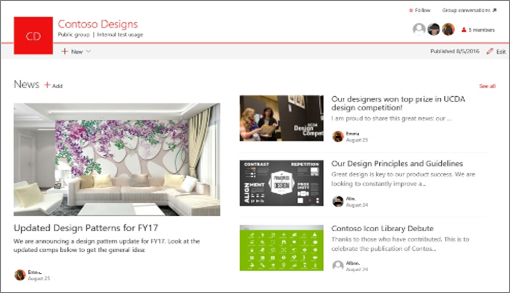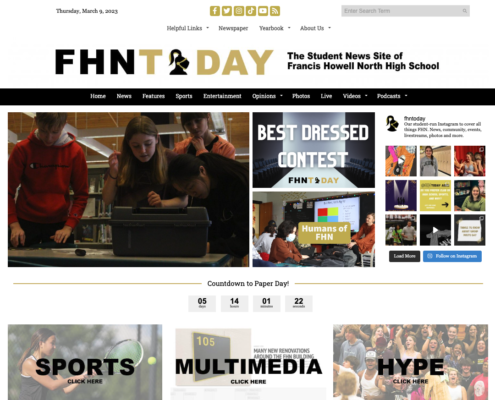The Single Strategy To Use For International News Online
The Single Strategy To Use For International News Online
Blog Article
Everything about International News Online
Table of Contents10 Simple Techniques For International News OnlineThe 3-Minute Rule for International News OnlineThe Basic Principles Of International News Online Little Known Facts About International News Online.Some Known Factual Statements About International News Online
Some social media sites despite having relatively tiny general audiences stand out for having high shares of individuals who regularly go to the site for information. On the various other hand, just 15% of Snapchat individuals frequently obtain news on the application.
journalists, yet not for the general public, June 27, 2022 Information on Twitter: Eaten by Most Customers and Relied On by Many, Nov. 15, 2021 Even more than eight-in-ten Americans get news from electronic tools, Jan. 12, 2021 Measuring Information Consumption in a Digital Era, Dec. 8, 2020 Several Americans Obtain News on YouTube, Where Information Organizations and Independent Producers Grow Alongside, Sept.
Rumored Buzz on International News Online
When asked whether social media sites is a good or negative thing for freedom in their nation, a mean of 57% throughout 19 nations say that it is an advantage (International News Online). In virtually every country, near half or even more claim this, with the belief most usual in Singapore, where approximately three-quarters think social media sites is a good point for democracy in their nation.
And in the united state, just around a third think social networks is favorable for democracy the smallest share amongst all 19 countries evaluated. In eight countries, those who think that the political system in their nation permits them to have an impact on politics are also more probable to state that social media is a good idea for freedom.
Those who see the spread of false info online as a significant hazard to their nation are much less most likely to state that social media sites is a good idea for democracy, compared to those who check out the spread of misinformation online as either a small hazard or not a threat whatsoever.
The Only Guide for International News Online
This pattern appears in eight various other countries too. Views likewise vary by age. Older grownups in 12 nations are less likely to claim that social networks is a good idea for freedom in their nation when compared to their more youthful equivalents. In Japan, France, Israel, Hungary, the UK and Australia, the gap in between the youngest and earliest age groups goes to the very least 20 percentage points and ranges as high as 41 factors in Poland, where virtually nine-in-ten (87%) younger adults claim that social media sites has been an advantage for democracy in the country and only 46% of adults over 50 state the very same.
Across the 6 issues checked, few have a tendency to claim they see no changes because of increased connection instead seeing things transforming both favorably and adversely and usually both at the same time (International News Online). A median of 84% state technological connectivity has actually made people less complicated to control with incorrect info and rumors one of the most amongst the 6 problems evaluated
Undoubtedly, in many nations, those that assume social media has made it simpler to adjust people with misinformation and reports are additionally more probable to think that social networks has actually made people more informed. When it involves national politics, the web and social media sites are usually viewed as turbulent, with a typical of 65% saying that people are now a lot more divided in their political viewpoints.
Everything about International News Online
This feeling of danger is associated with the prevalent idea that individuals today are currently easier to adjust with false information and reports thanks to the net and social media sites. Around fifty percent or more in every nation checked shares this view. And in areas like the Netherlands, Australia and the UK, around nine-in-ten see people as more manipulable.
In South Korea, 90% of those under age 30 claim social media makes people simpler to adjust, compared with 65% of those 50 and older. this article People with even more education are additionally typically a lot more likely than those with less education to say that social media has led to people being easier to manipulate. International News Online.

The Buzz on International News Online
In Sweden, Japan, Greece and the Netherlands, around eight-in-ten or even more share this view, while in Malaysia, a smaller bulk (56%) claims the exact same. More youthful grownups tend to see social media making people a lot more educated than older adults do. Older adults, for their component, don't necessarily see the internet and social networks making people much less notified about what's taking place in their nation; instead, they're somewhat more probable to define these systems as having little effect on individuals's details levels.

Report this page